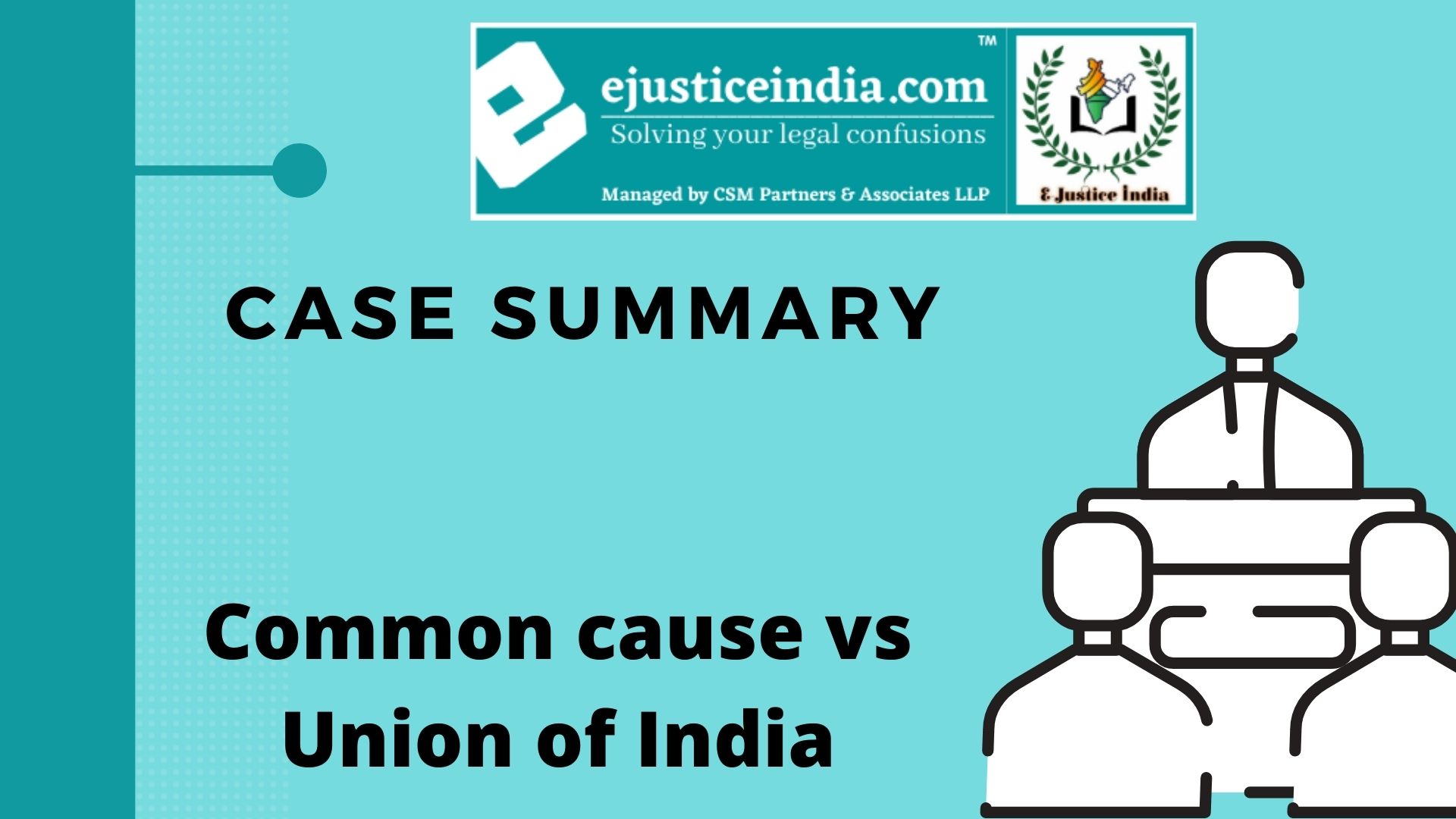CASE SUMMARY: QUEEN EMPRESS v. JOGENDRA CHUNDER BOSE AND OTHER
AUTHOR: PRANJALI PANDYA
CASE NAME: QUEEN EMPRESS v. JOGENDRA CHUNDER BOSE AND OTHER
EQUIVALENT CITATION: ILR (1892) 19 Cal 35.
BENCH: JUSTICE W.COMER PETHERAM,Kt.
INTRODUCTION
Before the enactment of the Indian Constitution, Section 124 – A of the Penal Code was used to end any kind of political debate. Under the Sedition provision, the British Government had ill – treated many Nationalist Politicians, journalists and owners of press which also included writers and poets.
The given case is the first recorded state trial for the act of sedition. The Hon`ble Court, in its much debated judgment, had given the difference between the word “disaffection” and “disapprobation”. Where it was being stated that “disaffection” was defined as the use of spoken or written words to create a disposition in the minds of those individuals as to whom the words are being addressed, not to adhere to the lawful authority of the Indian Government, or to resist that authority. It is sufficient for the purpose of the section that the words used are calculated to excite feelings of ill – will against the government authority, and to hold it up to the hatred and contempt of the people, and that they were used with an intention to create such feeling.
FACTS IN BRIEF
In the year, 1891, the Respondent – Mr. Bose was the editor of the newspaper named “Bangobasi”. An article was published by him, criticizing the Age of Consent Bill for posing a threat to the religion and for its coercive relationships with Indians. The article publish by on the newspaper had also gave a negative impact on the British colonialism. Hence, as a consequence of this very publication made, the proprietor, the editor, the manager and the printer of the newspaper – “Bangobasi” were changed for the offence under Section 124 – A and 500 of the Penal Code by attempting to excite feelings of disaffection to the Government established by law in British India and with defaming the Indian Government by publishing articles. The charger of defamation under Section 500 of the code was duly struck down. And hence, the matter was put forth before the Calcutta High Court.
ISSUE RAISED
Whether the four accused were guilty of the offence of Sedition?
JUDGEMENT
The Hob`le Judge had rejected the plea of the defence that there was no mention of rebellion in the article published in the newspaper. The proceedings against Mr. Bose were dropped after he had tended an apology.
The Judge had in short explained the word “disaffection” and “disapprobation”provided in the definition of sedition. It was stated that disaffection refers to a feeling contrary to affection (since there has been the use of word “dis”) which would amount to dislike or hatred. Whereas, disapprobation referred to disapproval.
The court had also referred to the difference between the British government and the administration. While answering this, the judge had raised an issue, “were these articles intended to excite feelings of enmity against the Government, or on the other hand were they merely expressing, though in strong language, disapprobation of certain government measure?” The jury was to decide upon the issue whether the article were published with the intention to commit the offence of sedition or not.
The jury in the case was unable to return a unabimous verdict. The judge directed for a retrial before another set of jury, but the retrial never took place for an apology was issued by the respondent for the publication and hence the prosecution was terminated.


